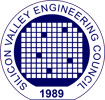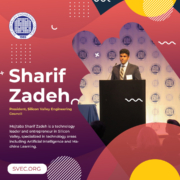Keynote Speech: Dr. Kang Shen Director, The WuTsai Neuroscience Institute
Keynote Speech
Inherited Intelligence: Genetic Contributions to IQ
Dr. Kang Shen began his keynote speech by discussing the widely debated topic of whether IQ is inherited or shaped by the environment. Drawing from genetic studies, he explained that approximately half of an individual’s IQ score can be attributed to genetics, while the other half is influenced by non-genetic factors. He emphasized the interplay between genetic information as the hardware and environmental experiences as the software in shaping our cognitive abilities.
Neural Mechanisms of Spatial Navigation: Unveiling the Cognitive Map
Dr. Shen highlighted the work of Professor Lisa Giocomo, whose research explores the neural components responsible for spatial navigation. Using electrodes implanted in the medial entorhinal cortex of mice, Giocomo’s lab discovered a network of neurons called grid cells. These grid cells exhibit remarkable firing patterns that form a grid-like representation of space in the brain. The density of grid cells changes across different regions, providing animals with rich information to navigate their environment.
Digital Twin Brain: Adapting Maps Based on Reward
Building upon the understanding of grid cells, Dr. Shen described Giocomo’s experiment where mice were exposed to two different environments—one with a food reward and one without. The study revealed that when animals received a reward in a specific location, the allocation of grid cells to that location increased. This suggests that the brain’s representation of space is flexible and can be modified based on rewarding experiences, enabling animals to optimize their behaviors in response to environmental stimuli.
Artificial Retina: Advancements in Restoring Vision
Dr. Shen touched upon ongoing research in Stanford’s Neuroscience Institute regarding artificial retinas. While not discussing his own research, he mentioned the work of colleagues who are exploring innovative approaches to restore vision using retinal prosthetics. By leveraging advancements in neural engineering, these efforts aim to develop technologies that can interface with the visual system, potentially offering solutions for individuals with visual impairments.
Challenges in Neuroscience: Complexity and Unanswered Questions
Throughout the speech, Dr. Shen emphasized the immense challenges faced in the field of neuroscience. He underscored that the brain remains the last frontier of biology due to its unique nature and complexity. Understanding fundamental questions such as the generation of consciousness, the mechanisms of learning and memory, and the storage of memories still elude researchers. Dr. Shen acknowledged that despite significant progress, many aspects of brain science remain elusive.
Conclusion
Dr. Kang Shen’s keynote speech shed light on the frontiers and challenges of neuroscience. He highlighted the role of genetics in shaping intelligence while emphasizing the intricate neural mechanisms underlying spatial navigation. The concept of a digital twin brain and the adaptability of neural maps based on rewarding experiences showcased the brain’s remarkable plasticity. Furthermore, Dr. Shen briefly mentioned ongoing research on artificial retinas, providing a glimpse into potential breakthroughs in vision restoration. Overall, his speech invited reflection on the complex nature of the brain and the ongoing pursuit of understanding its mysteries.


















